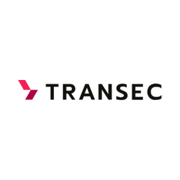
There are 10 Companies in the Philippines
that provide C development Services!
The Philippines is gaining traction in terms of providing outsourcing services not only for customer support but also for outsourcing tech services to different foreign businesses. What's promising about the Philippine IT industry is that it's still growing despite the economical and legislation challenges the country faces.
Discover Top IT Companies in the Philippines specialized in C and other related services. Find the best IT service providers for your projects.
C is a high-level programming language with a long and storied history. It was created in the early 1970s and is known for its simplicity, power, and versatility. C has played a foundational role in the development of many other programming languages and is widely used in various software development domains.
Handpicked companies • No obligation to hire • 100% risk-free
Featured Companies in Philippines
This month, the following C development companies managed to provide an outstanding service and support. It's worth taking a look.

Makati City, Philippines Head office in: United States
SDLC Corp is a global IT solutions provider offering custom software, apps, blockchain, AI, Odoo, Salesforce, and game development services.
We are your partner solution to finding reliable, fully-vetted tech professionals
Explore Top C development Companies in Philippines

Pegotec Pte. Ltd. Verified Company
Makati City, Philippines Head office in: Singapore
Pegotec is a top software firm delivering tailored web and mobile solutions.
We offer high level information security solutions.
Services:
Empower your business with a trusted IT Solutions Company and embrace the future of IT with confidence. Let's Make IT Happen!
Philippines Outsourcing Services Provider
We are an Internet Marketing Service provider like Social Media Marketing, Social Media Management, SEO, Paid Advertisement, & Video Production.
Services:

agileHorde Technologies Verified Company
Cebu, Philippines Head office in: India
Possess Your Success
Innovuze is a Web Development and IT company that is providing websites, software, digital content, marketing, and other IT services.
Services:
Filter C development Companies in Philippines by Cities
Find the right tech company near you or from a specific city. Some of the best companies might be located in smaller cities.
Find more C development companies around the world
TechBehemoths is the world's most advanced and user-friendly platform to match IT Companies with real clients without hustle.
The IT Industry in The Philippines: General Profile & Insights
The Philippines is gaining traction in terms of providing outsourcing services not only for customer support but also for tech services to different foreign businesses. What's promising about the Philippine IT industry is that it's still growing despite the economic and legislative challenges the country faces.
According to Glassdoor, the average salary in the web industry in the Philippines is estimated to be around $265 - $957/mo, making the country one of the cheapest IT service providers in the region. Due to this factor, the Philippines is considered to be a good outsourcing opportunity for many international web agencies and IT companies.
Why You Should Work With the Philippines' IT Companies
Most of the Philippines’ IT companies and web agencies provide services for a significantly lower price than you can find in any other country in the region. Another reason why Philippine IT companies are attractive is the local talent pool. In 2025, more than 1.3 million tech professionals were working in software development, data science (31% annual growth), AI, cybersecurity, and blockchain. This ensures a high productivity rate and helps small IT companies transform into medium and large competitors that ultimately reach the global market.
What to Be Aware of When Working With Philippine IT Companies
The good production rate of IT companies from the Philippines is balanced by a sub-developed business culture and a lack of global-level IT specialists in most of the companies. The contrast becomes higher with an underdeveloped IT education system in the country, which makes the Philippines companies lower the price rate below the ASEAN average.
How Reliable Are the Philippines' IT Companies
Considering the latest evolution of the IT sector in the country and the increasing number of foreign companies investing in the digital sector, Philippine companies have improved their reputation on the world level by implementing the minimum standards required by potential foreign clients, according to Rappler.
With all these, not many IT companies managed to exit the internal IT market and create a well-known name on a global level. This is why Tech Behemoths recommends taking a closer look when selecting a potential partner for web, software, and mobile projects from the Philippines, as well as from any other country.
Why Outsource Software Development to the Philippines?
Companies choose to outsource software development to the Philippines due to the multiple benefits it brings. It includes a high English proficiency that reduces communication limits, cultural compatibility due to their strong Western influences. Additionally, what makes the Philippines an attractive destination for Outsourcing is its cost-effectiveness, a rich talent pool, flexibility in time zone, strong work ethics, support from the government, tech-centered education, and rapid adoption of new technologies.
How the Philippines' IT Industry Relates to the Neighboring Countries
The Philippines, alongside Malaysia, Thailand, Indonesia, and Vietnam, represents the Tiger Cub Economies that are following the same model of technology and economic development as the Four Asian Tigers, which consist of South Korea, Singapore, Taiwan, and Hong Kong.
With a lot of competitors in the region, like China, Japan, Singapore, and Indonesia, the Philippines still needs to progress to reach a quality competitive level in the region. On the other hand, cheap prices for web & IT products and services attract small and medium businesses to invest and cooperate with Philippine-based IT companies.
What is C and what are its benefits for your projects?
C is a high-level programming language with a long and storied history. It was created in the early 1970s and is known for its simplicity, power, and versatility. C has played a foundational role in the development of many other programming languages and is widely used in various software development domains.
There are lots of IT companies that incorporate C programming into their service offerings. These companies often excel in low-level system programming, embedded systems development, and performance-critical applications. Notable examples include IBM, Oracle, and Intel, which utilize C in various aspects of their software and hardware development processes.
C service providers employ a range of development tools and technologies. They may use Integrated Development Environments (IDEs) like GCC and CLANG for C programming. It's essential to distinguish between C and C#: C is a procedural language, while C# (C-sharp) is an object-oriented language developed by Microsoft, primarily for Windows application development.
Several programming languages are closely related to C, including:
1. C++: An extension of C that adds object-oriented programming features.
2. Objective-C: Commonly used for macOS and iOS application development.
3. Rust: Known for memory safety and system-level programming.
4. Go (Golang): Developed by Google, suitable for systems and web programming.
5. Assembly Language: Provides low-level control over computer hardware.
Selecting the right IT company that leverages C for your project involves considering factors such as the company's expertise in C development, previous projects, client references, and industry focus. Assess their capability to deliver efficient, reliable, and secure solutions tailored to your specific requirements.
C programming is essential for various types of projects, including:
1. Operating Systems Development: Building the core components of operating systems.
2. Embedded Systems: Developing software for devices like smartphones, IoT devices, and automotive systems.
3. Game Development: Designing game engines and graphics libraries.
4. Compilers and Interpreters: Creating programming language compilers and interpreters.
5. Real-time Systems: Building software for applications requiring precise timing, such as robotics and aerospace.
6. Networking and Protocol Development: Implementing network protocols and communication software.
7. High-Performance Computing: Developing scientific and engineering applications that demand speed and efficiency.






